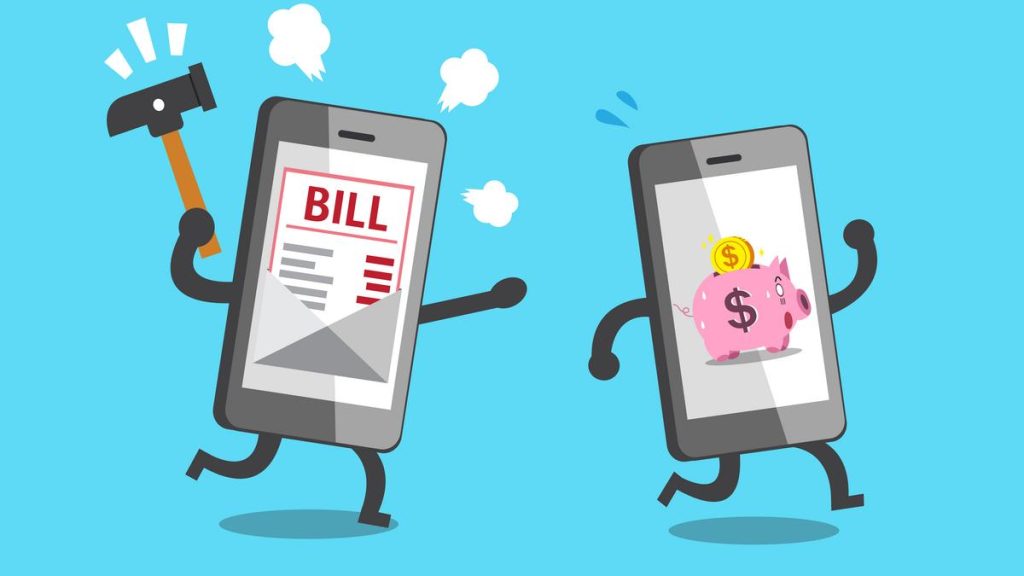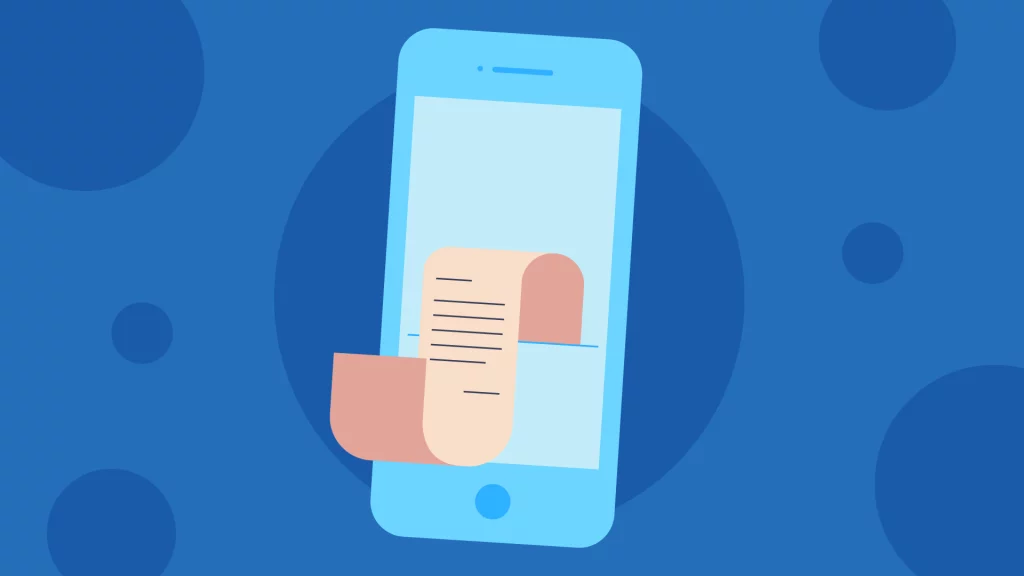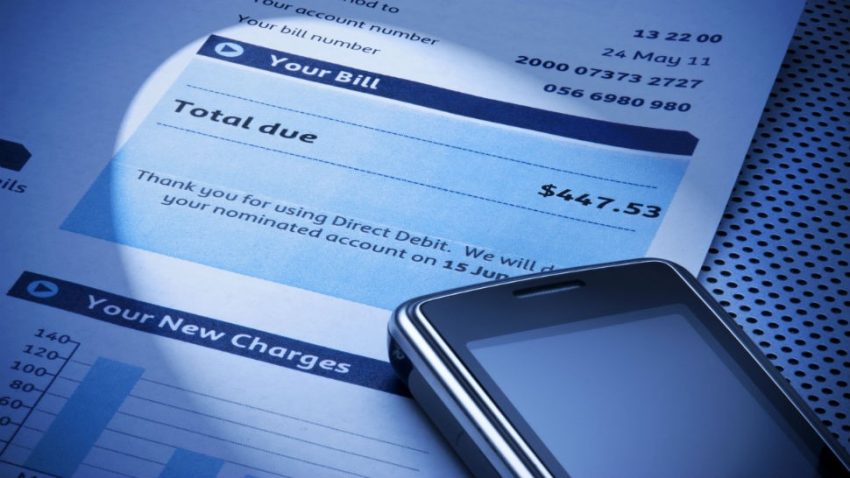No, a Phone bill doesn’t count as a utility bill. In contrast, landlines are considered utility bills.
Utility bills usually refer to expenses related to fundamental household services, such as electricity, water, gas, and sometimes even internet services. These are considered essential for daily living, and utility providers are often subject to specific regulations to ensure the public’s access to these services.
On the other hand, a phone bill covers charges for telecommunications services. While landline phone bills are sometimes classified as utility bills, mobile phone bills generally do not fall into this category. This distinction arises because landline services are often seen as a basic necessity, while mobile services are considered more discretionary.
What are Utility Bills?

Utility bills are regular invoices or statements that individuals or households receive from service providers for essential services and utilities. These bills typically detail the cost of services rendered and the consumption of resources. Utility bills encompass various types of services that are considered fundamental to modern living. The most common types of utility bills include
Electricity Bill: This bill covers the cost of electricity consumption in a home or business. It provides a breakdown of the electricity used and the associated charges.
Water Bill: Water bills account for the usage of water supply and often include charges for both water consumption and wastewater treatment.
Gas Bill: For homes or businesses using natural gas for heating, cooking, or other purposes, gas bills reflect the amount of gas consumed and the associated costs.
Internet and Cable Bill: These bills cover the costs of internet and cable television services. They detail the charges for various service packages and equipment rental fees.
Waste and Sewer Bills: These bills account for waste removal and sewage services, including garbage collection and sewage treatment.
However, utility bills serve multiple purposes. First, they serve as a statement of charges, providing customers with a record of their consumption and the associated costs.
Utility bills are often accepted as proof of address, which is required for various purposes, including setting up bank accounts, registering for services, and verifying residency. Moreover, utility bills help individuals and households budget for their recurring expenses. And, detailed utility bills can raise awareness about resource consumption and encourage energy and water conservation.
What Is a Phone Bill?
A phone bill is an itemized statement or invoice that individuals or businesses receive from their telecommunications service provider. It outlines the charges associated with the use of phone services, whether for landline or mobile phone lines. Phone bills typically include detailed information about various aspects of the telecommunications service, such as
Call Details: A breakdown of the calls made and received, including call duration, date, time, and phone numbers involved.
Data Usage: For mobile phone plans, data usage details are included, showing the amount of data consumed for activities like browsing the internet, streaming media, and using apps.
Text Messaging: Charges related to text messages sent and received, including any international messaging fees.
Plan Costs: The base monthly fee for the phone service plan, which may include voice calls, text messages, and data allowances.
Additional Charges: This section lists any additional charges, such as international calling fees, roaming charges, and premium services.
Taxes and Regulatory Fees: Phone bills often include taxes and regulatory fees imposed by local, state, or federal governments to support telecommunications infrastructure and services.
Total Amount Due: The grand total of all charges and fees, along with the due date for payment.
When is a Utility Bill Needed?
Utility bills are needed in various situations to verify a person’s address, demonstrate financial responsibility, or access essential services. Here are some common scenarios in which utility bills may be required
Setting Up Utilities
When moving to a new residence, you typically need utility bills to set up services like electricity, water, and gas. These bills confirm your address and are essential for establishing service accounts.
Proof of Residency
Many institutions, such as schools, government agencies, and financial institutions, require proof of residency as part of their verification process. Utility bills serve as evidence of your address when you need to enroll in a school, obtain a driver’s license, or open a bank account.
Applying for Loans or Credit
When applying for loans, credit cards, or mortgages, lenders often request utility bills to confirm your address and assess your financial responsibility.
Rental Agreements
Landlords may request utility bills from prospective tenants to ensure they have a history of paying their bills on time. This can be an important factor in the tenant selection process.
Employment Verification
Some employers may ask for utility bills as part of the address verification process during the hiring or onboarding of employees.
Government Assistance Programs
To qualify for certain government assistance programs, you may need to provide utility bills as proof of your residence and financial situation.
Address Changes
If you change your address on legal documents, like your driver’s license or passport, utility bills can be used to confirm your new address.
Credit Applications
Utility bills can serve as a secondary form of address verification when applying for credit or services, adding an extra layer of security.
Can You Deduct Phone Bills on Taxes?
In the United Kingdom, you can claim deductions on your phone bills for tax purposes, but there are specific conditions to consider. To qualify for this deduction, your phone must be used exclusively for business purposes. If you use your phone for both personal and business reasons, you can only claim a portion of the bill that corresponds to its business use.
To ensure compliance with tax regulations, it’s crucial to maintain accurate records of your business-related phone usage. This includes documenting the date, time, and duration of each business call, as well as specifying the purpose of the call. Keeping a copy of your phone bill that highlights the expenses related to business calls can provide further evidence.
If you are self-employed, you have the option to claim the full amount of your mobile phone bill as a business expense if it is solely used for business purposes. However, if you use it for both personal and business use, you will need to estimate the percentage allocated for business.
For employees, the ability to deduct phone bills relies on whether your employer reimburses you for these expenses. If your employer provides reimbursement, you generally cannot claim further deductions.
To make the process smoother, it’s advisable to keep a record of your phone usage for a week or two, allowing you to gauge the percentage of business use more accurately.
In cases of uncertainty regarding tax deductions for phone bills, consulting with a qualified tax professional is always a prudent step. They can offer guidance tailored to your specific situation and ensure that you adhere to all applicable tax regulations.
Can I use my phone bill for anything else?
Yes, you can use your phone bill for various purposes beyond addressing the utility bill, although the specific applications may depend on the policies and requirements of the organization or situation.
Proof of Address
One of the most common uses of a phone bill is as proof of address for various purposes, including:
- Setting up new accounts or services, such as bank accounts, credit cards, or utilities.
- Verifying your address when applying for government-issued identification, like a driver’s license or passport.
- Registering for services like internet, cable television, or insurance.
Income Tax Deductions
If you use your phone for business purposes, you may be able to deduct a portion of your phone bill as a business expense on your income tax return. This can apply to both self-employed individuals and employees who use their personal phones for work-related calls.
Expense Reimbursement
If your employer requires you to use your personal phone for business purposes, they may reimburse you for a portion of your phone expenses. In such cases, you can use your phone bill to document these expenses and seek reimbursement.
Residency Verification
In rental agreements or property leases, you might need to demonstrate that you are the occupant of a specific residence. A phone bill can serve as additional evidence to confirm your address.
Personal Records
Keeping copies of your phone bills can be useful for personal record-keeping, tracking your phone usage, or resolving billing disputes with your service provider.
However, it’s important to note that the acceptability of a phone bill for these purposes may vary, and the organization or institution you are dealing with may have specific requirements regarding which documents they accept.
Therefore, always check with the relevant entity to confirm whether a phone bill is suitable for your intended use.
Are there any other types of bills that are not considered utility bills in the UK?

In the UK, utility bills are typically associated with essential services such as electricity, water, gas, and sometimes internet services. These are considered primary utility bills because they are vital for daily living. However, various other types of bills or expenses are not considered traditional utility bills in the UK.
Council Tax: Council tax is a local tax paid to local authorities to support community services such as schools, waste collection, and local infrastructure. It is separate from utility bills and is used to fund local government services.
Mortgage or Rent: Payments for housing in the form of rent or mortgage are not considered utility bills. While they are essential expenses, they are distinct from utility bills and typically involve separate agreements.
TV License: In the UK, you need a TV license to watch or record live television broadcasts. This is a mandatory fee, but it is not considered a utility bill.
Insurance Premiums: Insurance payments, such as car insurance, home insurance, and health insurance premiums, are not utility bills. They cover risk management and protection but are not related to utility services.
Credit Card Bills: Credit card statements and bills are financial obligations, but they are not utility bills. They represent credit usage and payments.
Mobile Phone Bills: While mobile phone bills may be used for business purposes and tax deductions, they are not considered traditional utility bills unless they include landline services.
Subscriptions: Payments for subscriptions to services like streaming platforms, magazines, or gym memberships are not utility bills. These are considered discretionary expenses.
Loan Repayments: Loan payments, such as those for personal loans or student loans, are financial obligations but are not utility bills.
FAQ
What if the bill is not in my name?
If the bill is not in your name, it may impact your ability to use it as proof of address. You might need additional documentation to verify your connection to the address, such as a lease agreement or a letter from the bill holder.
Is anyone’s name actually Bill?
No, “Bill” in this context typically refers to a statement of charges or an invoice, not a person’s name.
Can I change the name on the bill?
Generally, the name on a bill is associated with the account holder, so changing it may require contacting the service provider and following their procedures.
Does the billing name matter?
Yes, the billing name is important, especially for proof of address or identity verification purposes. It needs to accurately reflect the responsible party for the services associated with the bill.
Does the wrong billing address matter?
Yes, an incorrect billing address can cause issues with service delivery and billing. It’s crucial to have an accurate billing address to ensure that bills reach the intended recipient.
How important is the billing address?
The billing address is significant for various reasons, including billing accuracy, identity verification, and proof of residence for various services and legal documents.
What is the first billing name?
The “first billing name” typically refers to the primary account holder’s name, the person responsible for the services covered by the bill.
What do I put for the billing name?
For the billing name, you should enter the name of the person or entity responsible for the services and charges outlined in the bill.
Is billing and payment the same?
No, billing and payment are not the same. Billing refers to the statement of charges or invoices for services rendered, while payment is the act of settling the charges by providing the necessary funds.
What should be the billing name?
The billing name should be the legal name of the person or entity responsible for the services covered by the bill. It should match official records and identification documents.
Final words
On the whole, a phone bill and a utility bill serve different purposes in our daily lives. While traditional utility bills cover essential services like electricity, water, and gas, phone bills are primarily associated with telecommunications services. In most cases, a phone bill is not considered a utility bill, especially when it comes to mobile phone services. However, landline phone bills may be classified as utility bills because they provide a service to the public, much like energy suppliers.
The distinction between phone bills and utility bills can vary based on location, specific usage scenarios, and the policies of the organization or institution involved. It’s essential to understand these differences and consult the relevant authorities or service providers when you need to use a phone bill for address verification or other purposes.
Ultimately, the answer to whether a phone bill counts as a utility bill depends on the specific context and the local regulations in place. Being well-informed and making the right choices based on your circumstances is key to navigating this distinction effectively.

